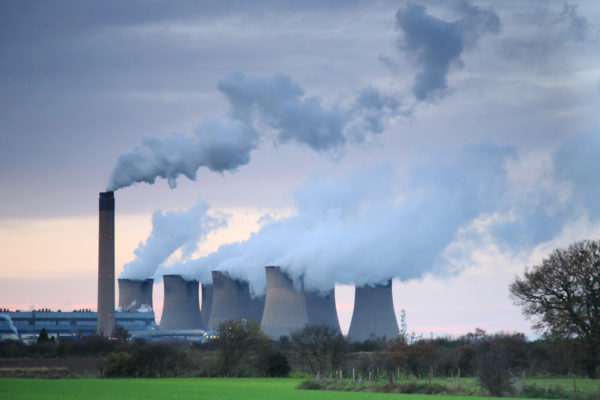Blog: Noise in Nottingham

By John Newton, Hearing Link volunteer
Although people who worked in noisy places have known since the beginnings of the industrial revolution that loud noises make you deaf, the effect wasn’t recognised “officially” in the UK until the 1970s, around the time that legislation about conditions in factories was also radically altered. The vital change in the law placed the responsibility for an employee’s health and welfare firmly on the shoulders of the individual managers.
Harassed operations managers such as I was then were for the first time able to say to a financial manager reluctant to loosen the purse strings to pay for necessary safety equipment that he (it was always a he) could find himself personally in the local County Court if he didn’t cough up. These were my thoughts recently when I travelled to Nottingham to represent Hearing Link at Ratcliffe on Stour power station who had organised a ‘Health and Welfare Week’ for their employees.
Ratcliffe is a coal fired electricity generating station owned and run by Uniper, a company originated in Germany and is huge. It is visible from 10 miles away in the flat midlands countryside and can generate 2000MW of electricity, that’s enough for 2 million homes. It uses coal literally by the train load, at full capacity 800 tonnes an hour. That’s enough to power 800 large steam locomotives like The Flying Scotsman and at full speed.
Coal of course, is the fuel that powered the industrial revolution. It was the source of heat necessary to turn water into steam and started with the first crude mine pumping engines which were built in Cornwall at the beginning of the eighteenth century. There is a direct link between those small engine houses which you can still find here and there and the enormous complex that is Ratcliffe Power Station. The basic technology is the same.
And of course, it’s noisy. The four steam turbines and generator sets at Ratcliffe run at 3000 revolutions per minute and are the size of a house and pretty noisy, but the most noise arises from the mills which grind the familiar black lumps of coal into a fine powder before it is mixed with air and burned in the furnaces. In places in the plant the noise level is above the 90db which is generally accepted as harmful.
During my day there, I had conversations with a number of employees, mostly various types engineering technicians and also with the people in charge of employee welfare. I was pleased to learn that noise induced hearing loss is taken very seriously indeed, as of course the law now requires. Everyone assured me that the wearing of protection was strictly enforced. I was inclined to take this with a pinch of salt, at first thinking I was being fed a company line, and recalling the arguments I had on the issue 30 years ago; but the consistency of what I was told by different people overcame my innate scepticism.
All new employees are given a hearing test when they start. They are retested after a year and then after every three years. Various forms of ear protection are used both ear plugs and headphone style devices and including for some, custom moulded earplugs. It’s hard to convince a young person (or even an old person sometimes) to take precautions when the harmful effect of noise may not be felt for years afterwards but in this place Uniper, the owners of the plant seem they have got the message over.
We know that elsewhere this awareness is not universal and it’s commonplace for example to see construction workers using hyper noisy diamond saws to cut up paving slabs without wearing ear protection. It’s regrettable that some of those people will be coming to the Hearing Link courses in the future looking for help to cope with their hearing loss.
As a coda to my visit, I read a few days later that our government have resolved to close all coal fired power stations by 2025. This vast complex is destined to go the way of those little stone built eighteenth century engine houses. What will they do with the site I wonder?
As an engineer I regret that all that meticulous engineering embodying hundreds of thousands of hours skilled work in its design, construction and operation will soon be handed over to the demolition gang. As a grandfather however, it’s good to know that the coming generations will be protected from the perils of global warming. It looks very likely that the twenty first century systems of power generation will be much less likely to poison our planet.
They will mostly be based on various ways of harnessing the abundant energy of the sun (and inherently less noisy!)